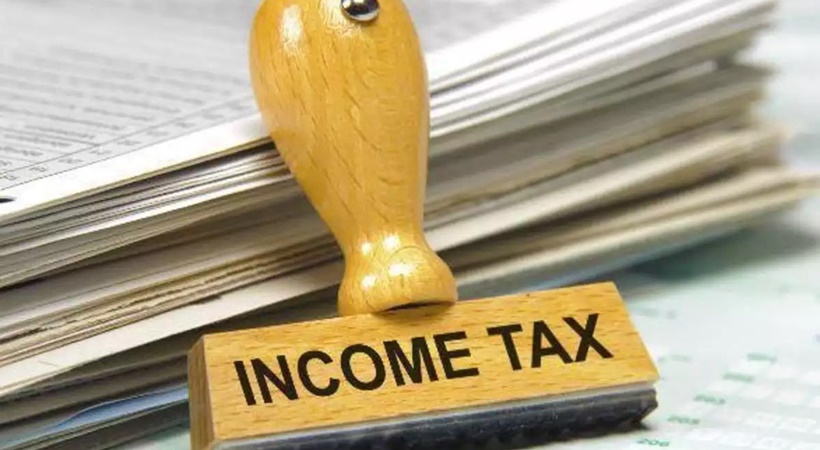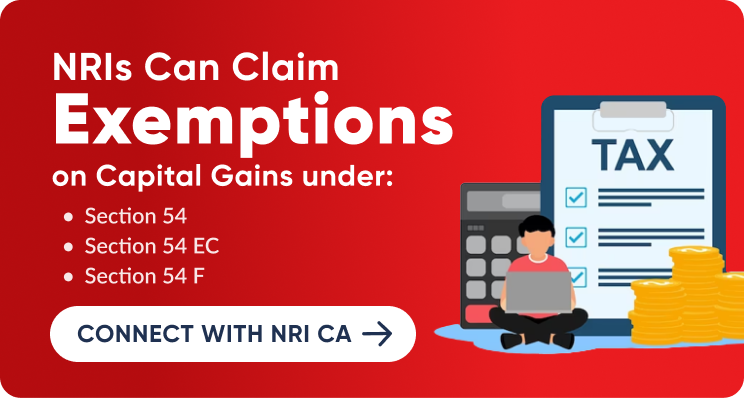Several UAE-based Non-Resident Indians (NRIs), have received an income tax notice from the Indian Income Tax Department regarding their previous investments in India. This has caused worry among NRIs about how to proceed after receiving such notices, especially when they are not familiar with Indian tax laws and regulations. However, it is essential to respond to such notices promptly to avoid any legal consequences. In this blog, we will explain how NRIs should respond to a reassessment income tax notice.

What Income Tax Notices are being Sent to NRIs?
A reassessment notice to NRIs is a communication sent in an email form by the Indian Income Tax Department to an NRI to review their tax returns. These emailed notifications are titled under ‘Notice under Section 148 (or Section 148A) of Income Tax Act 1961’. This notice is typically sent when the Income Tax Department believes that for certain NRI investments made in India over the past years, no income tax returns were filed. These notices are sent to NRIs to begin reassessment proceedings.

Meaning of Reassessment Proceedings in Income Tax
Reassessment proceedings in income tax refer to a process where the Indian Income Tax Department reopens a taxpayer’s previously completed income tax assessment or income tax return (ITR) filing to reassess the total income of the taxpayer. This review process involves reassessing the total income of the NRI by including any income that may have been missed during the earlier assessment. In some cases, this may even be an NRI’s first assessment if they have not filed their tax return before.
How should NRIs Respond to Reassessment Income Tax Notice
NRIs can respond to the reassessment income tax notice in the following ways:
- If NRIs are satisfied with the reasons provided by the assessing officer, they should file their return at the earliest. If they have already filed their return, they should send a copy to the assessing officer (AO).
- Provide the required information and supporting documents to the Income Tax Department.
- In case, NRIs believe that the reasons provided are not valid, they can make a written submission challenging the notice.
It is advisable for an NRI to seek professional advice from a tax expert, who can guide them on how to respond to the reassessment notice to ensure compliance with the relevant provisions of the Income Tax Act, 1961.

What is Section 148 and Section 148A of Income Tax Act 1961?
In 2021, the Income Tax Act, 1961, introduced Section 148A, which allows Indian tax authorities to share information with authorities of other countries, including information concerning NRIs. This information exchange is aimed at facilitating the implementation of the provisions of the Income Tax Act, 1961.
On the other hand, Section 148 of the Income Tax Act, 1961, empowers the Indian Income Tax Department to issue a reassessment notice if they suspect that the taxpayer’s income has not been correctly assessed or has been under- assessed i.e. the assessment of a tax at a lower value than the correct one.
What to Know if you Receive Reassessment Income Tax Notice as an NRI?
As an NRI who has received a notice under Section 148A or Section 148 of the Income Tax Act, 1961, it is important to understand the contents of the notice, which typically includes:
Contents
- Details of the transactions such as the time of deposits, purchase or sale of property, mutual funds, FCNR (Foreign Currency Non-Resident Account) deposits, among others, as listed by the tax department upon receipt of the notice.
- On occasion, the amount indicated in the notice may be repeated twice or clients may struggle to locate the actual amount due to a significant discrepancy between the reported and actual amount. In these scenarios, seeking proper guidance from tax experts before taking any action related to income tax submissions is crucial.

Reason for the Notice
The notice will also provide you with the reason for the reassessment proceedings. The reason for this may be attributed to the Income Tax Department’s belief that there has been an under-assessment or absence of income in the previous assessment year/years.
Time Limit to Respond to the Notice
Upon receiving the notice, a specific time frame within which a response is required will be provided. For notices issued under Section 148A, the response time is typically 60 days from the date of receipt, while for notices issued under Section 148, the response time is typically 30 days from the date of receipt.
Consequence of Non-Response
The Income Tax Department can initiate proceedings under Section 144 of the Income Tax Act, 1961 if NRIs do not respond to the notice within the given time period. This allows the tax department to make an assessment based on the available information, and pass an adverse order, which will result in a painful process of appeal for NRIs.
Appeal against the Assessment
If NRIs are unsatisfied with the assessment made by the Income Tax Department, they can file an appeal within 30 days of the receipt of the assessment order.
To Sum Up
To sum up, when an NRI gets notified under Section 148 or Section 148A of the Income Tax Act, 1961, it can be intimidating. It is crucial to comprehend the grounds for the notification and take action within the given time frame, which includes submitting an income tax return, providing the necessary information, or presenting a written objection against the notice.
Contact SBNRI
To get more clarity on reassessment income tax notice and how NRIs can respond to the notice, you can get in touch with NRI legal and tax experts.
If you have any doubts or queries and want specialized advice from tax experts at SBNRI, contact us using the button below. Also visit our blog and YouTube Channel for more details.
GREAT NEWS! Now connect with our expert directly on WhatsApp using the button below.



